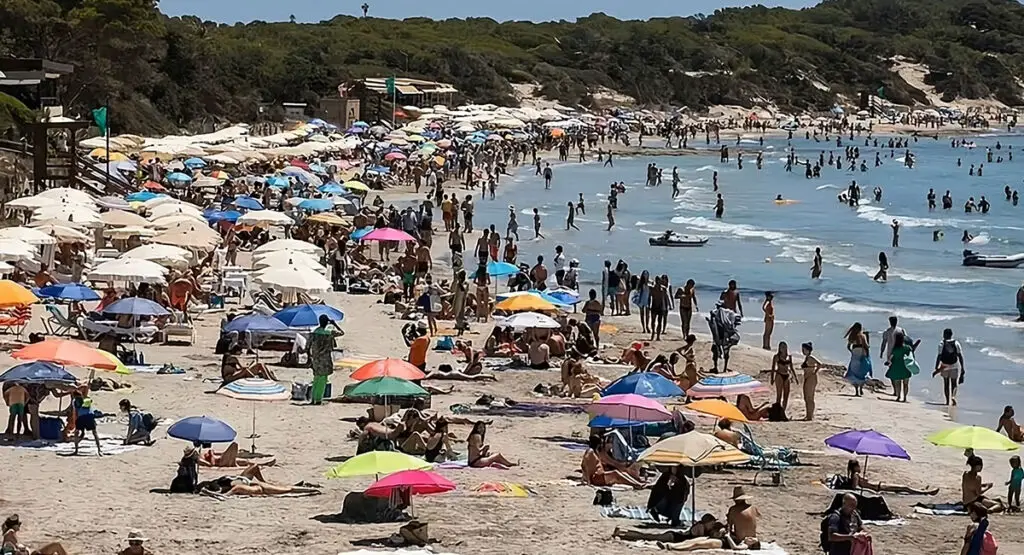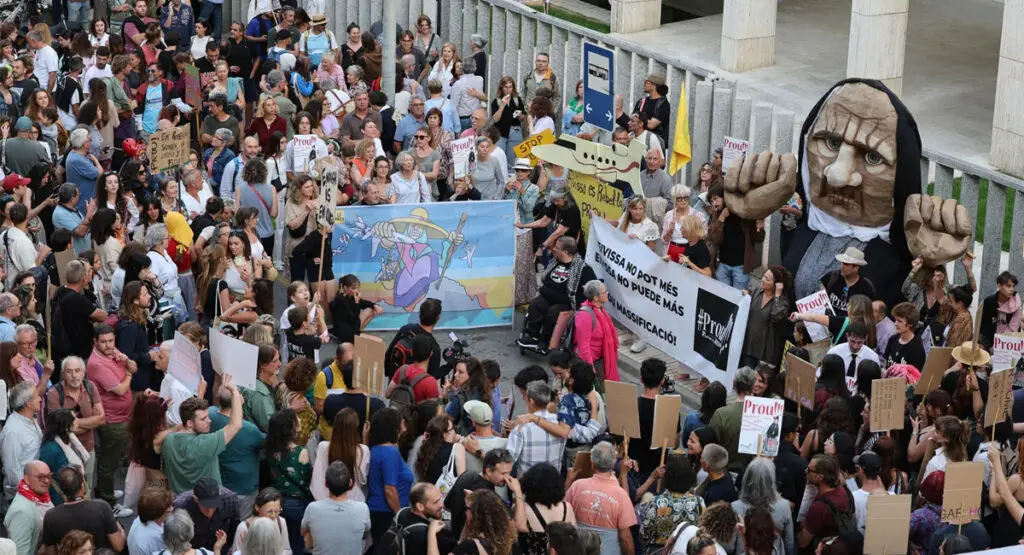Ibiza’s Battle Against Overtourism: Locals Demand Change

Ibiza, known for its vibrant nightlife and stunning beaches, has long been a magnet for tourists from around the world. However, the island’s popularity has come at a significant cost. Overtourism has become a pressing issue, affecting the quality of life for local residents and straining the island’s resources. Recent protests have highlighted these tensions, with thousands of locals taking to the streets to demand change. This blog post delves into the root causes of overtourism in Ibiza, the impact on its inhabitants, and the measures being taken to address this growing problem.
You may also be interested:
- Ushuaïa Tower Reimagined as The Unexpected Ibiza Hotel
- Top Picks for Best Hotels for Singles in Ibiza 2025
- Destino Five Ibiza: Pacha Resort Rebrands for 2025
Background on Overtourism in Ibiza
Overtourism occurs when there are too many tourists in a destination, leading to negative effects on the environment, infrastructure, and local communities. In Ibiza, this phenomenon has reached critical levels. The island’s economy heavily relies on tourism, with more than 80% of its income coming from this sector. However, the influx of visitors has led to overcrowded beaches, traffic congestion, and a housing crisis, making life increasingly difficult for the island’s residents.
The Protests
On May 24th, 2024, the Prou Eivissa (Enough Ibiza) group organized a significant rally to voice their concerns about overtourism. Approximately 1,000 people participated in the protest, carrying signs with messages such as “We don’t want an island of cement” and “Tourism, yes but not like this.” The demonstrators demanded a tourism moratorium, incentives for hotels to reduce capacity, stricter water use regulations, a ban on using taxpayer money to promote Ibiza as a tourist destination, and laws to limit personal visitor vehicles on the roads.

Rafael Giménez, a spokesperson for Prou Eivissa, emphasized the urgent need to control the number of tourists and reduce the number of illegal rental properties. “We want a limit on new tourist places and a ban on more illegal flats,” Giménez stated. “With fewer flats around, it pushes up the price.”
Impact on Local Residents
The effects of overtourism have been particularly harsh on local residents. Many are being priced out of their homes due to the rise in short-term rentals and luxury hotels. Essential workers, crucial to the tourism industry, are finding it increasingly difficult to live on the island. Some workers have resorted to living in caravans or even their cars. One teacher, unable to afford housing in Ibiza, commutes 40 times a month from Mallorca.
” Ibiza’s an island, so housing is limited by definition,” Giménez explained. “The law of supply and demand has totally broken down… The fact that you have more tourists and more tourist properties means that you need more workers from elsewhere to work in the shops, bars, and restaurants.”
Government and Official Responses
In response to the escalating problem, Spanish and local authorities have implemented several measures. These include tighter alcohol restrictions in key party areas such as San Antonio and Magaluf, banning supermarket alcohol sales during late hours, and imposing heavy fines for drinking outside designated areas. Tourists arriving without proof of accommodation now face fines up to €10,000.
Authorities are also considering banning drunk and “anti-social” tourists outright. Additionally, Uber’s recent launch in Ibiza with an initial fleet of 14 cars is seen as a move to manage transportation more effectively.
Broader Implications
While tourism remains the lifeblood of Ibiza’s economy, the social and environmental costs cannot be ignored. The influx of tourists places immense pressure on local resources, from water to housing. Sustainable tourism experts argue that it’s not enough to attract well-behaved tourists; there needs to be a focus on ensuring that the economic benefits of tourism are equitably distributed among the local population.
” If you look at the Canary Islands, a third of the population live on the edge of poverty,” said sustainable tourism academic Sebastian Zenker. “Tourism offers a big income to these islands — but for whom? At the moment, a large proportion of the population does not benefit.”
Conclusion
Ibiza stands at a crossroads, grappling with the challenges of overtourism. The recent protests underscore the urgency of finding a balance between welcoming tourists and preserving the quality of life for local residents. Authorities have started implementing measures to address these issues, but we need ongoing efforts and innovative solutions to ensure sustainable tourism practices. As travelers, we must also be mindful of our impact and support destinations in ways that benefit both the environment and local communities.




Leave a Reply